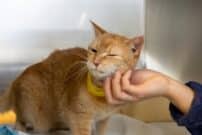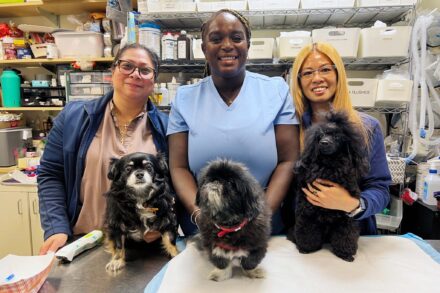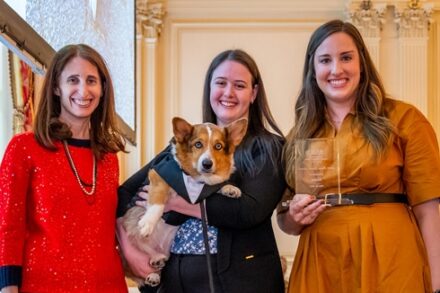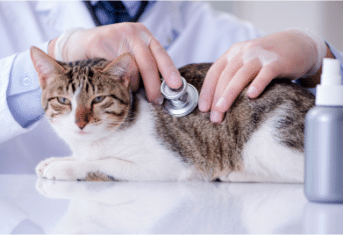Take Your Cat to the Vet Day 2025: Breaking Down Barriers to Feline Care
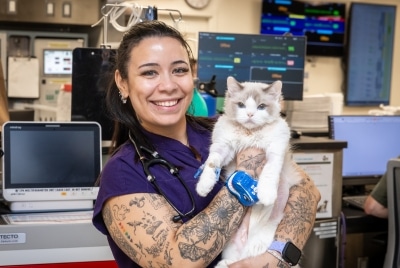
Take Your Cat to the Vet Day 2025: Breaking Down Barriers to Feline Care
August 22 is “Take Your Cat to the Vet Day,” but here at the Schwarzman Animal Medical Center, every day is take your cat to the vet day. In the first half of 2025, our veterinarians saw more than 1,300 feline patients.
While 74 million pet cats share our homes in the United States, another 30 to 40 million stray cats live in our communities, according to the inaugural issue of the World of the Cat Report produced by Hills Pet Nutrition. “Take Your Cat to the Vet Day” originally began to promote better care for cats, addressing a significant gap in feline healthcare. Cats visit the veterinarian much less often than their canine counterparts–only 40% of cats visit the veterinarian annually, compared to 82% of dogs.
In today’s blogpost, I’ll discuss the barriers cat owners face when taking their pet to the veterinarian, new research to help improve feline health that you and your cat can participate in and good news about treatments for feline disease.
Barriers to Cat Care
Cat owners are familiar with the challenges of getting their pet to the veterinarian: wrestling cats into carriers, stressful car rides and cats’ general dislike of the veterinarian’s office. But the World of the Cat Report highlights some lesser-known barriers to feline healthcare.
For instance, there is a striking shortage of specialized feline care according to the World of the Cat report. Did you know there are only 46 American Animal Hospital Association Accredited feline hospitals? Additionally, out of the 28,000 to 32,000 veterinary practices in the United States, only 880 are certified Cat Friendly Practices® by the Feline Veterinary Medical Association, with another 355 in progress as of 2023. The American Board of Veterinary Practitioners reports only 96 certified feline practitioners, most of them located in the United States.
Other countries seem to focus on feline specialization more than we do. Australia and New Zealand offer Feline Practice Online Learning for practitioners, and Spain’s Asociación Veterinarios Especialistas En Pequeños Animales confers Acreditación en Medicina Felina (AVEPA Accreditation in Feline Medicine).
Citizen Science for Cats
I have previously written about the Dog Aging Project, a citizen scientist project with over 50,000 participants gathering valuable canine health data. Until recently, there was no similar project for cats, reinforcing the medically underserved status of our feline friends. But now there is Darwin’s Cats, a research group based at Harvard, MIT and UMass Chan Medical School. This group is catalyzing groundbreaking research by engaging cats and their people in scientific discovery through research surveys and genetic sequencing. With just a simple brush of your cat’s coat—a process that most cats already enjoy—you can help build the largest feline genetic database ever assembled. More data leads to better care for cats as we come to better understand their medical needs.
Good News for Cats
Despite the challenges of getting your cat to the veterinarian’s office and limited research for cats, veterinarians now have more effective treatments for cats than ever before. We have breakthrough treatments for FIP, new drugs to treat feline diabetes and, here at AMC, our new cat-sized, minimally invasive surgical equipment has expanded these advanced surgical procedures to our feline patients.
All of this adds up to make any day—especially August 22—a great day to take your cat to the vet.





